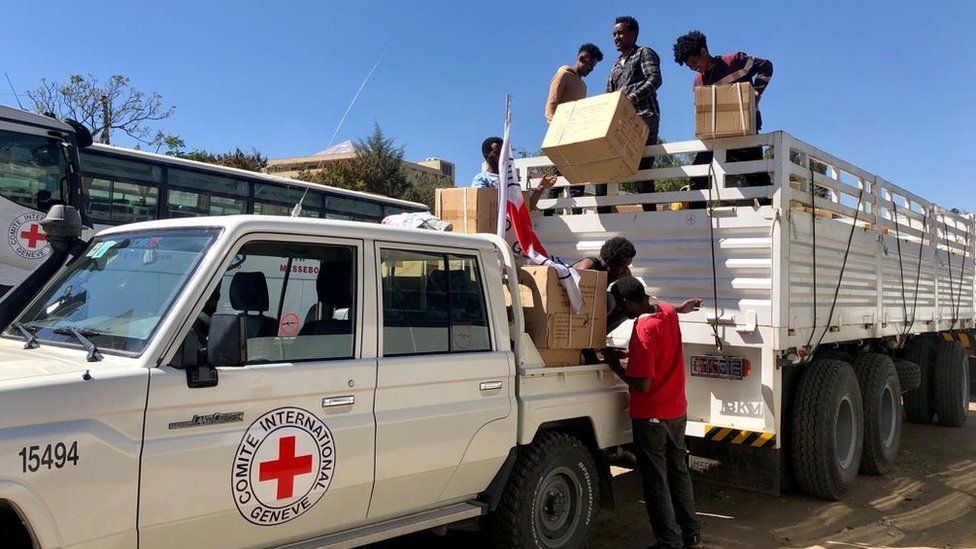Ethiopia’s Tigray conflict: World powers condemn ‘human rights abuses’

By ![]()
The G7 group of leading economic powers has said it is “strongly concerned” by reports of human rights abuses in Ethiopia’s conflict-hit Tigray region.
The group, which includes the UK, US and the EU, called for the reported crimes to be investigated and those responsible to be held to account.
They also urged Eritrea to withdraw troops that are fighting alongside Ethiopia against forces in Tigray.
Both countries’ troops have been accused of numerous rights abuses.
These include mass killings of civilians, sexual violence, looting and the abuse of refugees. A BBC Africa Eye investigation has also uncovered evidence suggesting the Ethiopian military carried out a massacre in which at least 15 men were killed.
Eritrea has dismissed the accusations, while Ethiopia’s prime minister has previously denied that any civilians have been killed.
The conflict began in November after the Tigray People’s Liberation Front (TPLF) captured military bases in the northern Ethiopian region. Prime Minister Abiy Ahmed then ordered an offensive to oust the group.
The TPLF had been the ruling party in the area, but fell out with Mr Abiy over his efforts to increase the power of the central government.
Hundreds of civilians have been killed and tens of thousands displaced since the fighting began. Tigrayan forces, meanwhile, have also faced accusations of human rights abuses.
“We condemn the killing of civilians, sexual and gender based violence, indiscriminate shelling and the forced displacement of residents of Tigray and Eritrean refugees,” the G7 group said in a statement on Friday.
“It is essential that there is an independent, transparent and impartial investigation into the crimes reported and that those responsible for these human rights abuses are held to account,” it added.
The statement, which was made by the group’s foreign ministers and the High Representative of the EU, also expressed concern over “worsening food insecurity” and called for “immediate, unhindered humanitarian access” to the region.
There has long been animosity between Tigray and the government in Eritrea, which shares a border with the region.


The presence of Eritrean troops in Ethiopia has proved especially controversial because the two countries fought a bitter border war, which was only officially ended after Mr Abiy became prime minister in 2018 – a move which earned him the Nobel Peace prize the following year.
Thousands of people have fled Eritrea in recent years, largely because of forced conscription which can last for decades.
Last week, UN aid workers reached two refugee camps housing some 22,000 Eritreans in Tigray.
They said the Shimelba and Hitsats camps had been completely destroyed and all humanitarian facilities looted and vandalised.